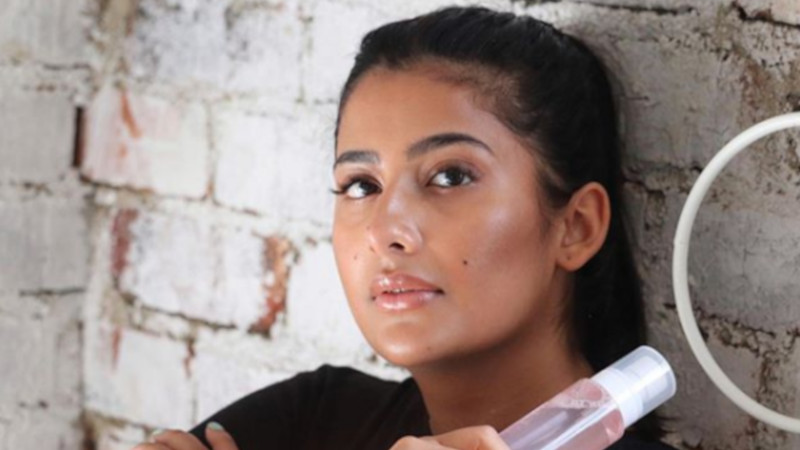The clock is ticking for Windows 10 users. With Microsoft’s official End of Support (EOS) deadline looming in October 2025, South Africans are being…
Coming from a family of entrepreneurs helped me get started, say cosmetics retailer

Switch Beauty founder 19-year-old South African Rabia Ghoor grew up surrounded by siblings and a father who were all entrepreneurs.
She founded her e-commerce website which specialises in cosmetics at the age of 14.
Ghoor (pictured above) says coming from a family who are all entrepreneurs made it easier for her to get support and empathy when she decided to start her own business — so much so that she dropped out of school in Grade 10 with her family’s support.
“The fact that there were so many entrepreneurs around me, it was never a question of can I do it…
“Whereas for other kids they kind of look at entrepreneurship or starting a business as ‘oh my G** I could never do that’ because they haven’t seen it in a relative or in a relatable setting to them,” she says.
Crowd-sourced from 2000 users on social media
Ghoor started off by doing some market research. She’d spend 11-hours in front of her computer absorbing knowledge and everything to do with cosmetics formulation.
“I actually went on a site called Fiver (a web platform for sourcing freelancers) and consulted with cosmetic chemists on certain things.
“So, I was finding out what made this product do what I like and which ingredient in here made it do what I like, and why is it so expensive.
“I’d ask myself is there not a cheaper way to source this ingredient? Is there not a cheap alternative to this ingredient to get the same performance?” she says.
Ghoor says she realised that most beauty companies “just throw shit” at the wall and see if it sticks. She believed there was a better alternative to this method.
She crowd-sourced information on her Instagram by asking her followers what they want from a cosmetics brand.
“I put my consumer at the head of the table instead of sitting and guessing what it is that she wants.
“And people came back with all kinds of feedback then we went deeper into that feedback. People were like ‘I want an eyeliner’, I was like ‘what do you want the eyeliner to do?’,”she says.
Ghoor says she ended getting up 2000 separate comments on what people wanted from an eyeliner.
She adds that crowd-sourcing information like this has been a massive help for her business. “It’s cool to have that sort of insight,” says Ghoor.
She then went to beauty retailer Savora and bought every single eyeliner the shop had worth over $45.
“I tried every single one and found the ingredient in each and every single eyeliner that made it do the things I liked about it. I went to Google and searched the ingredients, then I compiled all of these ingredients into one master eye liner.
“So, for example where a Marc Jacobs eyeliner would cost you upwards of $55 the Switch Beauty performs just as well, is marketed just as well, but will cost you R150,” she says.
‘Make do with what you have’
Ghoor says she takes that kind of approach and philosophy with all of the products on her line.
She explains that she started the business with R6000 which she borrowed from her father. “And I’ve never borrowed a cent from anyone since,” she adds.
Since her overheads were small, she never thought she’d need more money so she just made do with what she had.
“If I couldn’t (pay for a) developer I learnt how to code, if I couldn’t afford a graphic designer I found canvas. I taught myself to do a lot of the things that a business would think they need to outsource. Everything seems intimidating until you learn it or until you understand it,” she says.
“You might have told 15-year old me you could never code a website , you don’t know the second thing about it, but then you go and you research it and you learn and you learn. There are always apps and integrations to help you.
The bootstrapped business, which employs seven people, has been self-sustainable since and has grown to become what Ghoor says is a “seven-figure” business.
‘Entrepreneurship widely glamourised’
Despite her success, Ghoor believes entrepreneurship is a “widely glamourised” affair.
“When in reality it’s extreme amounts of impostor syndrome and burnout periods that are almost crippling and like twice a month you are like ‘oh shit’ I can do this I’m fine.
“And the rest of the month you’re like burning out constantly. And sometimes when you are able to see your ideas materialise your concepts come to life its rewarding, but more often than not at that point you’re already so burnt out.
“You need to have a very firm understanding of you’re doing it what you’re doing. The ‘why’ is your anchor. You also need to have a firm understanding of who you are,” she says.
Ghoor says last year she had an “existential crisis” which saw her question herself on who she was, what she was doing and whether she still wanted to do this (run the business).
“So, you need to have a firm understanding of yourself and why you’re doing what you’re doing,” she adds.
So, will she ever go back to school? Ghoor says she’s got no plans of going back.
“Not if I want to become a doctor. This is the life plan,” she adds.
This story appeared originally on the Anzisha Prize’s blog on 10 December. See it here.
Featured image: Switch Beauty Rabia Ghoor (Rabia Ghoor via Instagram)
The Anzisha Prize seeks to fundamentally and significantly increase the number of job generative entrepreneurs in Africa, and is a partnership between African Leadership Academy and Mastercard Foundation. Through Ventureburn, they hope to share inspirational and relatable stories of very young (15 to 22 year old) African entrepreneurs and the people that support them. [learn more]


